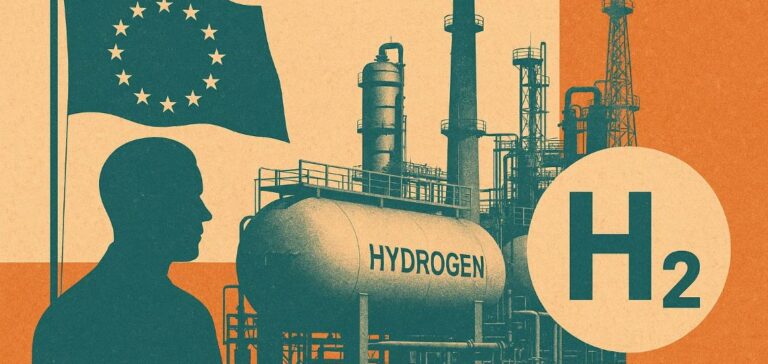The European Commission officially released its opinion on May 16 concerning the statutes, internal rules, and preliminary list of members of the European Network of Network Operators for Hydrogen (ENNOH). This endorsement marks a crucial step in the establishment of the new entity designed to structure the hydrogen transmission infrastructure network within the European Union.
Early cooperation under EU legal supervision
The opinion, referenced C/2025/2004, recommends that future hydrogen transmission network operators begin cooperation without delay via ENNOH, while ensuring full compliance with EU law. The Commission’s position echoes that of the Agency for the Cooperation of Energy Regulators (ACER), published in December 2024, which also called for alignment of ENNOH’s statutes with EU legislation.
The current ENNOH statutes, submitted in August 2024, must now be finalised and published by operators by early July 2025. The objective is to ensure the association, as defined under Regulation (EU) 2024/1789, operates on a legally sound foundation, especially regarding membership criteria and internal procedures.
Towards harmonised governance of the hydrogen network
ENNOH is set to assume, as of January 1, 2027, the responsibilities of the European Network of Transmission System Operators for Gas (ENTSOG) concerning the planning of hydrogen infrastructure development. It will also contribute to the development of harmonised technical and operational codes necessary for the operation of an interconnected EU hydrogen grid.
“It is essential that operators begin working quickly, but within a framework compliant with EU rules,” stated the Directorate-General for Energy in its communication. This framework will also include stakeholder consultation mechanisms and a transparent process for membership admission and rule amendments.
The Commission’s opinion further stresses that prospective members must be certified under the requirements of Directive (EU) 2024/1788 or at least have initiated the process. This condition aims to ensure the integrity of ENNOH’s operation from its initial phases.






















